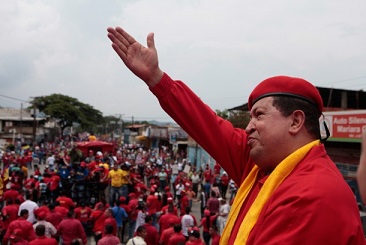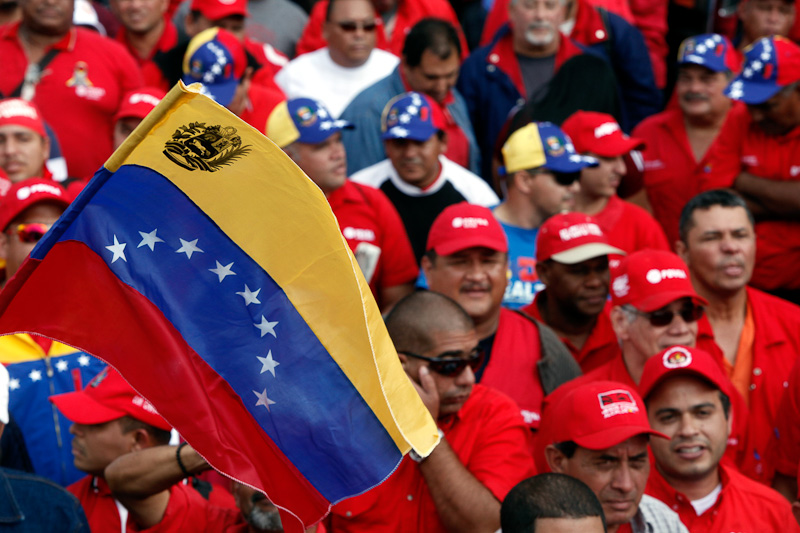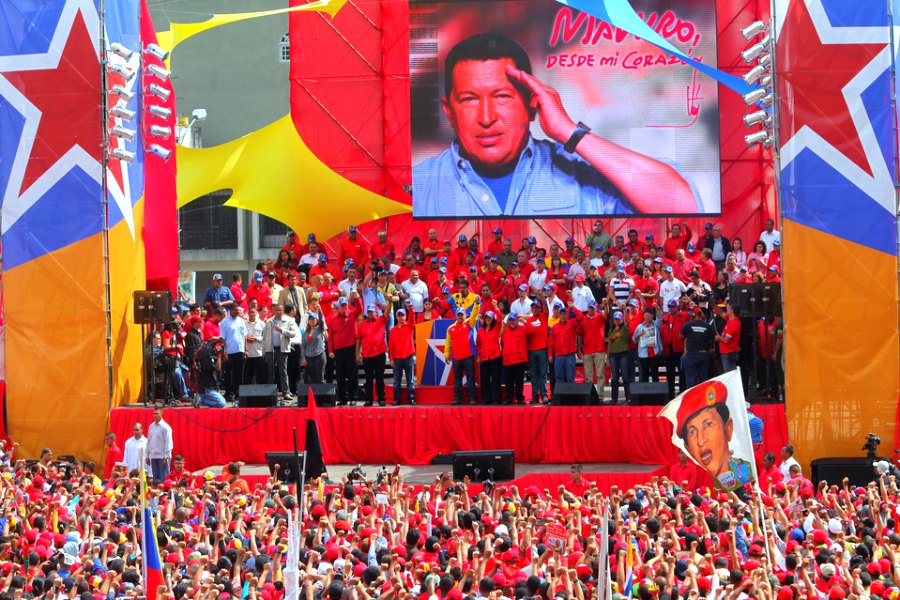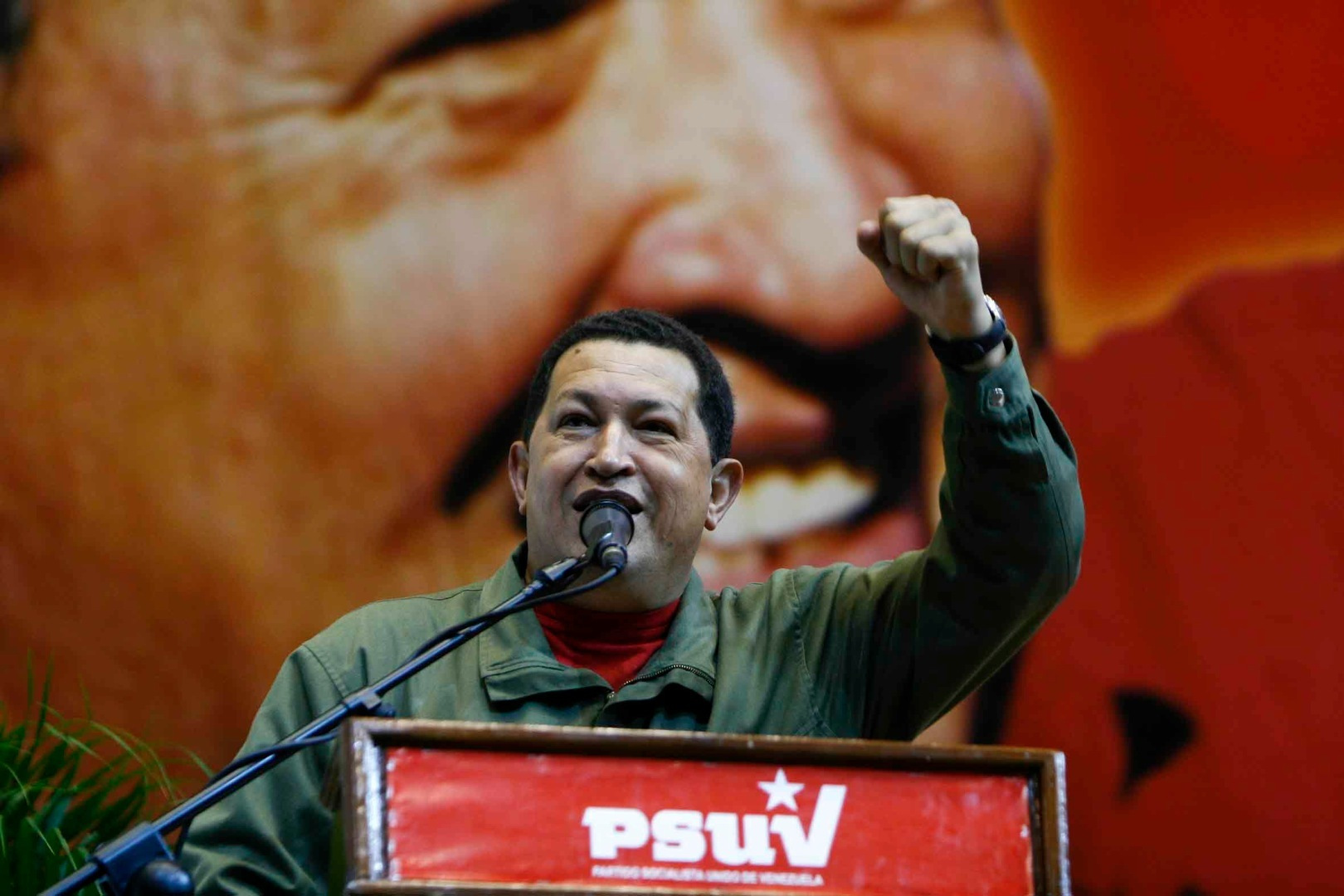The BBC and Venezuela: bias and lies

Coup d’états are not accidental; they don’t just fall from the sky. They are the product of specific material conditions. To be successful they need preparation, planning, propaganda, time and money. Propaganda is important for the public, both domestic and international, to be “convinced” that a coup - the forcible removal of an elected government - is the logical and necessary outcome of specific circumstances.
The mass media under capitalism is part of the state machine and uses its influence and “prestige” of being “objective” and “independent” to play an important role in the propaganda element. In the UK, the BBC has perfected its skills in preparing the population to accept that any coup that imperialism supports is justified. And this they have done about Venezuela.
The BBC programme Revolution in Ruins: The Hugo Chavez Story, broadcast on 16 January, sought to prepare viewers to accept and support any moves against Maduro, as the inheritor of Chavez’s legacy. And within a week, an attempted coup had begun!
Half-truths
In doing so, however, the BBC had to tell some half-truths. They also tried to present the problems facing Venezuela as the outcome of the dictatorial characters of Chavez and Maduro. No attempt was made to explain the economic, social, and political context of the Bolivarian Revolution. And of course no mention was made of the regime of sanctions imposed by the USA.

Right from the outset the programme claimed that Chavez’s 14-year presidency was a “precursor to many of today’s populist leaders”. Under Chavez, the documentary claimed, it was a story of “incredible short-term achievements in health and education” but also a “ruthless pursuit of power”. This set the scene for the rest of the programme.
Despite having the largest oil reserves in the world, the country has collapsed. There is chaos, poverty and violence. It is the most dangerous country in the world. Chavez had been obsessed by the “pursuit of power”. The population had been “seduced and controlled by one person”. The worst side of Chavez’s personality had come to the fore.
This was the narrative peddled by the so-called ‘objective’ BBC. We are asked to believe that all of Venezuela’s problems have been caused by the dictator Chavez! It shows the depths to which the BBC has sunk.
Chavez’s critics
To support its view it had eight interviewees, in addition to the narrator. The majority were anti-Chavez. Even Eva Golinger, who had been an adviser to and supporter of Chavez for 11 years, made accusations of a sexual nature against Chavez. Whether the incident she related happened or not we do not know, as only she and Chavez were present, and Chavez died in 2012 so he cannot defend himself.
In the 1998 presidential elections, Chavez got 56% of the vote, despite the favourite to win being a former beauty queen. But, said one commentator, Raul Gallegos, “What Chavez were you getting? Would he be the military authoritarian figure?” And a ‘learned’ university professor, Margarita Lopez Maya, states that Chavez had “no political experience”.

It gets worse. But the BBC has to refrain from telling outright lies. Half-truths will suffice. The oil company PdVSA, although owned by the state, was in effect a state within a state, where many of the oil revenues were siphoned off by the board of directors to benefit the oligarchy, while the mass of the population lived in poverty suffering hunger and malnutrition. Yet, claims Gallegos, “it was well run” but it “surrendered to Chavez”.
Chavez’s “grip on power tightened” when he took control of PdVSA, which had been dominated by the opposition elite. But to opposition supporters this looked like a “communist takeover”. Chavez was apparently even to blame for the unsuccessful coup in April 2002, as demonstrators had supposedly been killed by snipers “on both sides”! This was a blatant lie, as the TV footage at the time showed.
Character assassination
The programme claimed that as Chavez’s presidency unfolded he became “intoxicated with power” or that “power went to his head”. Yet what the programme could not hide was the fact that in his last presidential election in October 2012, “the whole country voted for a man they knew was dying and they still voted him into office”. Isn’t it annoying when facts get in the way of a good story.

What the BBC could and would never understand was that Chavez had a symbiotic link to the popular masses because he expressed their desire to rid Venezuela of poverty, homelessness, hunger and illiteracy.
The programme was therefore in its entirety a character assassination of Chavez. In passing, Jeremy Corbyn was also shown to be guilty by association, as Chavez in turn was shown to be greeting Ahmadinejad of Iran, Gaddafi of Libya, Hussein of Iraq - and of course Corbyn!
Imperialist intervention
Finally, in three areas, the programme mentioned issues that if they had been developed might have painted a more truthful picture of what happened under Chavez. He “bypassed traditional media” and spoke directly to the people in his programme Alo Presidente. No mention from the BBC that most of the media was privately owned, and that much of it had from the outset of Chavez being elected president called for his overthrow. What would happen to the mass media in the UK if it openly called for the overthrow of an elected government?
Secondly, in using oil revenues to fund social programmes (misiones) Chavez decided that “traditional methods of funding social projects were too slow and bureaucratic” so he bypassed the state structures. For socialists, the criticism is that you cannot use a capitalist state to move society in the direction of socialism. In Venezuela as in all other attempts in history to change society, you cannot use the existing state. It is, in Marx’s words, the executive committee of the ruling class.
Lastly, in its conclusion, a commentator, Miguel Tinker Salas, said that “the poor will always be part of the political dialogue in Venezuela”. A lasting legacy of Chavez and the Bolivarian Revolution is that millions of ordinary Venezuelans have been awoken to political life. They, along with the 1.6 million people in armed militias, will be the bulwark against any attempt at military intervention by imperialist powers.
So the BBC remains exposed with half-truths (la verdad a media) and misleading quotes (“critics claim” – which critics?; “many blame him (Chavez)” – how many?).
Yet despite the blatant bias, it is still worth watching the programme if you do not know much about Chavez and the Bolivarian Revolution – especially considering the Trump coup attempt that is currently underway, accompanied by a whole new barrage of media lies.

 Please help build the campaign by
Please help build the campaign by 